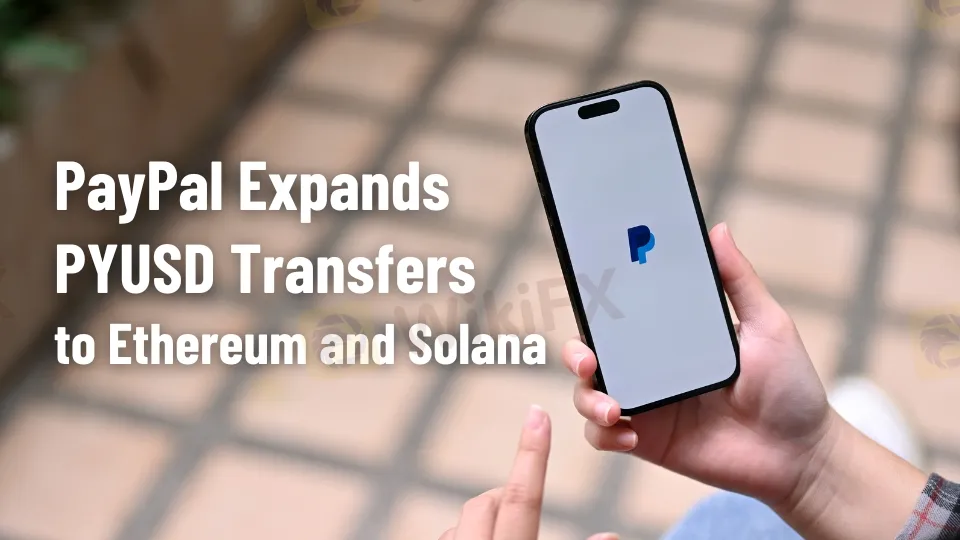PayPal Expands PYUSD Transfers to Ethereum and Solana
Sommario:PayPal's PYUSD stablecoin can now transfer across Ethereum and Solana, enhancing flexibility for users through a LayerZero cross-chain integration.

PayPal‘s USD-backed stablecoin, PYUSD, now has expanded transfer capabilities across the Ethereum and Solana blockchains, marking a significant milestone for the digital finance sector. Thanks to an integration with LayerZero’s cross-chain protocol, users can seamlessly transfer PYUSD across these two major networks, supporting increased autonomy for those who self-custody their tokens. With this upgrade, PYUSD holders are no longer limited to centralized platforms like PayPal or Venmo for transactions.
LayerZero‘s Omnichain Fungible Token (OFT) Standard enables this new level of functionality, making the cross-chain transfers not only possible but also highly flexible for end-users. This advancement aligns with PayPal’s overarching vision for PYUSD, as highlighted by Jose Fernandez da Ponte, Senior Vice President of Blockchain and Digital Currencies at PayPal. “We believe that PYUSD holders will welcome the flexibility and convenience offered by LayerZero,” da Ponte shared, underscoring PayPals goal of making PYUSD a versatile tool within the broader digital finance landscape.
This cross-chain integration is part of PayPal‘s broader strategy to expand PYUSD’s ecosystem and boost its adoption among users. PYUSD experienced a peak market capitalization of $1 billion earlier this year, though recent data from DeFiLlama shows a decline to $513 million. As of now, $384 million of PYUSDs market cap exists on Ethereum, while $166 million is on Solana, reflecting fluctuating market demands.

In line with this expansion, PayPal has actively built partnerships to broaden PYUSD‘s reach and usability. Earlier collaborations include a joint effort with Anchorage Digital, where users storing PYUSD with the crypto custodian could earn rewards. Additionally, in May, PayPal integrated PYUSD into Solana’s ecosystem through partnerships with major crypto platforms such as Crypto.com, Phantom, and Paxos. These integrations enable users to convert easily between fiat and digital assets, making PYUSD an appealing option in the competitive stablecoin market.
Despite these efforts, PYUSD remains relatively modest in market size compared to stablecoin giants like Tether (USDT) and USD Coin (USDC), which command market caps of $118 billion and $35 billion, respectively. However, PayPals initiatives indicate a steady commitment to establishing PYUSD as a key player in the digital currency space.
The expansion of PYUSDs functionality comes amid an evolving regulatory landscape. With the stablecoin market largely unregulated and carrying a combined market cap exceeding $140 billion, some U.S. lawmakers are calling for a structured approach. Senators Cynthia Lummis and Kirsten Gillibrand recently proposed legislation targeting stablecoin regulation. Their bill suggests operational requirements for issuers and mandates that stablecoins be redeemable for USD, aiming to provide clarity around their use as payment assets rather than securities.
Under the proposed U.S. legislation, eligible issuers would need to establish subsidiaries dedicated to stablecoin issuance and be supervised by the Federal Reserve or other state and federal regulatory bodies.
Meanwhile, other countries are also progressing on regulatory fronts. The UK is expected to enact stablecoin regulations within months, while Singapore has already established formal regulatory requirements.
Final Thoughts
PayPal‘s latest expansion for PYUSD highlights the company’s drive to create a seamless and versatile digital currency. While PYUSDs market cap remains smaller than those of its largest competitors, these incremental improvements position it for future growth. As regulatory frameworks for stablecoins take shape globally, stablecoin providers like PayPal are likely to benefit from increased market clarity and confidence, fostering a more secure and mainstream-ready ecosystem for digital finance.

WikiFX Trader
WikiFX Trader
Rate Calc

